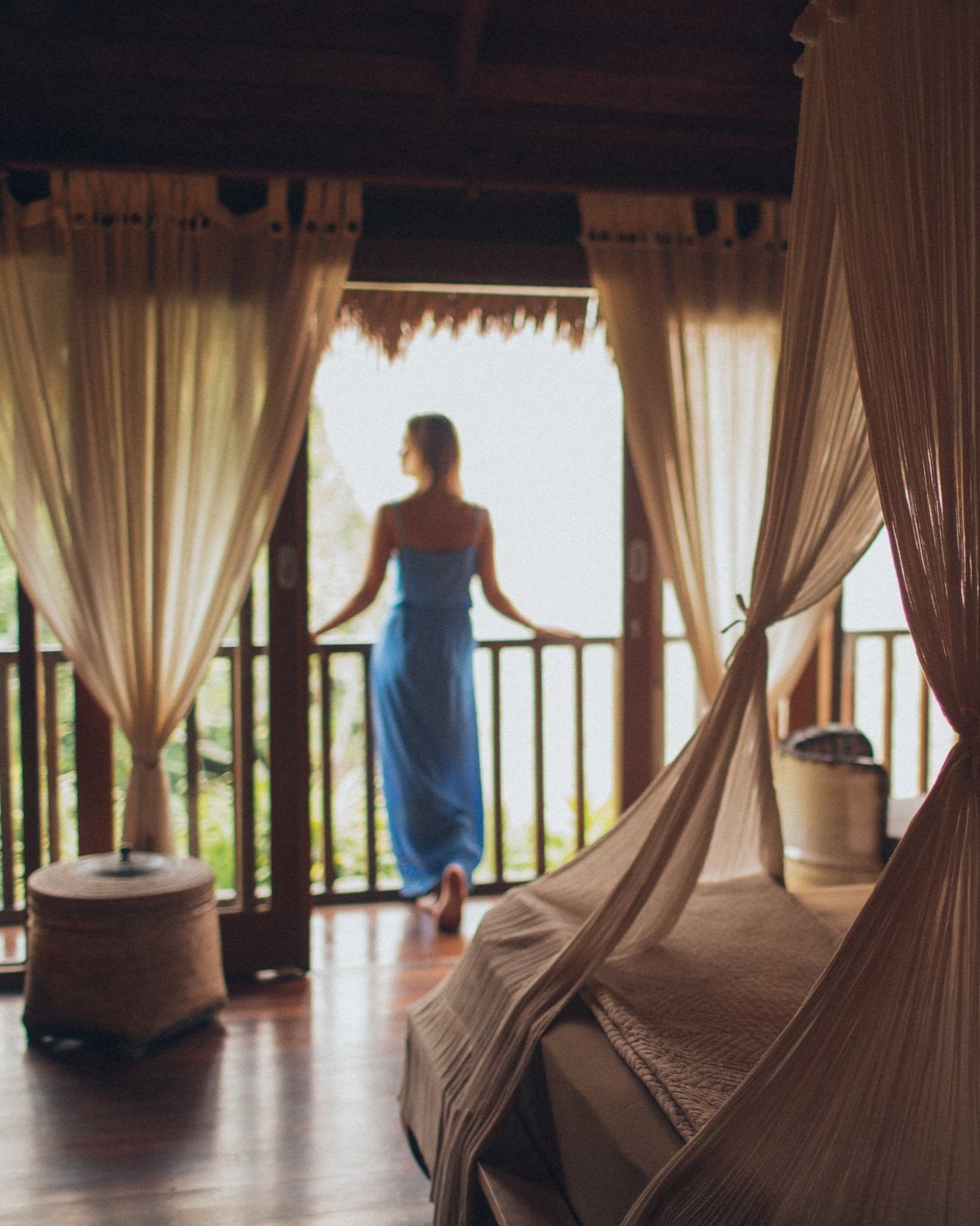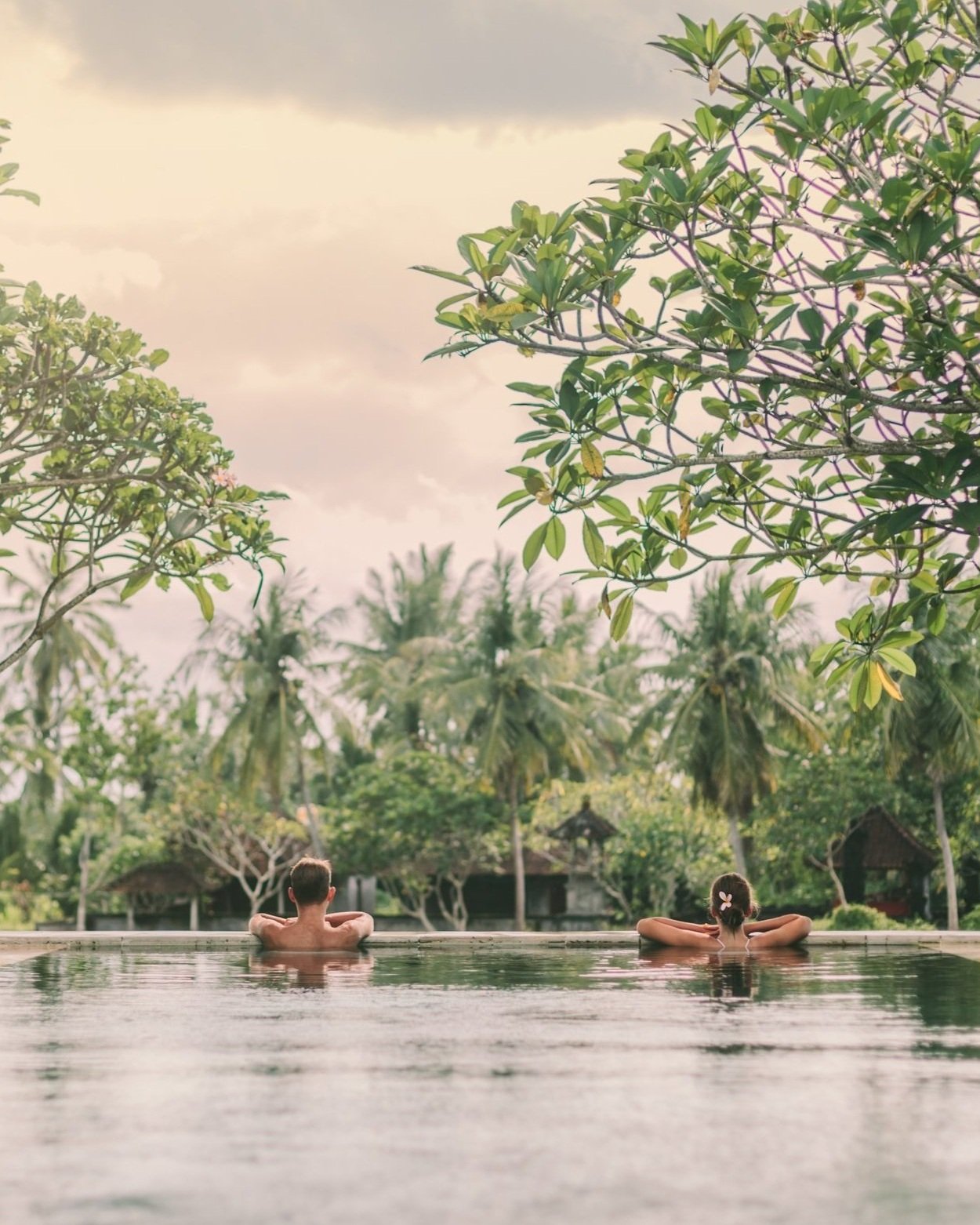An Interview with International Wellness and Hospitality Expert: Andrew Gibson
We met with advisor, client representative and consultant to the wellbeing real estate, hotel and resort industry, Andrew Gibson, to discuss the shift of momentum by major hotel groups from spa to wellness.
L.M.: What is the fundamental difference between a wellness retreat and a hotel that provides wellness services?
A.G.: Historically, most retreats have been family run and required a full-time commitment, but now with so much public demand, more and more hotels are opening their eyes to the opportunities they present.
This is why Synergy comes at the perfect time, especially as we see hotel groups – moving towards a retreat-hybrid model.
It is also worth mentioning that at the heart of a hotel wellness experience are the practitioners. For instance, at Six Senses in Dubai (now a Talise spa) we created a crystal room and hired a German crystal healer, who delivered her practice with such passion, that many guests left feeling completely enlightened.
“Another trend that is going to make a permanent change on hotels is the inclusion of wellness in the concept creation of the hotel.”
L.M.: How do you see wellness developing in the hotel world?
A.G.: The business of wellness operations is a difficult task because you have to find the right people which is why the small independent operators have often maintained their special niche with a dedicated and passionate team of experts.
I see the major hotel groups as pioneers of scaling the wellness hospitality industry. As a result of growing demand for wellness groups such as Hyatt and InterContinental are buying their way into wellness through the acquisition of leading wellness brands. Accor are producing health to wealth podcasts. These groups have advantages such as a large distribution network and global networking.
There is also a real shift happening from spas – in the traditional sense – to wellness. There is momentum as the demand for wellness vacations continues to rise. However, there is still a need to communicate to, and educate the public on the value of a wellness retreat as a valued added use of their travel and/or vacation time. There is a difference between dedicated wellness retreats and a la carte options at a hotel.
L.M.: I agree. For example, does it come down to the travel agents knowing what the client needs? How will this impact wellness operators?
A.G.: The industry has debated the classification of a wellness retreat. In simple terms - If the primary business is to sell wellness, with rooms as a necessity to facilitate the programme, then you are a wellness retreat.
However, there is a hybrid option that is growing in the hotel industry. Traditionally a typical hotel or resort has the primary objective to sell rooms with F&B, events, and spas used to attract guests to the hotel. The hybrid version offers a dedicated wellness retreat as a package and the guest on that package may sit amongst guests that are not participating in a wellness programme.
The easiest way to determine a property's emphasis is to check their website – do they show the rooms first or the packages they sell? Ultimately it comes down to positioning. Clients familiar with the wellness space will seek out the retreats they are interested in. But there is a market of guests that require dedicated agents to help them find the best wellness options.
Fortunately there is a growing number of specialised travel agents that focus on promoting wellness retreats, and also categorising them for certain preferences. And there are also luxury travel concierge services that are adding wellness retreats to their portfolio.
L.M.: Will it change how travel agents will market?
A.G.: It has already created a market for specialised travel agents - many of whom will be at the Retreats show. However I think it will take much longer for the major OTA’s (Online Travel agents) to change since they focus on keeping it simple - date, room, price! Anything more than that becomes complicated, difficult to compare.
For example, when we created the Sensei wellness retreat we took a long time to find an effective way to gather guest information prior to arrival so we could tailor make a programme for each guest. From an early stage the relationship between a guest on a wellness package becomes more involved and time consuming than a typical holiday.
This is why we are seeing new travel companies that focus on wellness and providing websites that allow guests to compare similar wellness services from a number of operators.
“Perhaps Synergy - The Retreat Show will be a catalyst to a group that can formulate universal standards, guidelines and manuals.”
L.M.: What are the major trends that you think will affect the public demand for wellness?
A.G.: I have just read an interesting student thesis about consumer behaviour affecting the demand for wellness in hotels. They found that the demand was increasing based on media coverage and awareness of the need for personal wellness maintenance. Covid has become an accelerator of this change by making people more aware of the need for personal responsibility for their health.
With regard to the amount people are willing to pay to have wellness included in their holiday, from the student study guests were happy to pay a premium of up to 20%.
It made me think – is this demand from a privileged segment of society that are educated and have disposable income or is it a universal trend? I concluded that whilst it might currently be biassed towards the more educated and those that are willing to pay the price, this will change. It will start to open to a wider audience.
Even if wellness isn't at the top of someone's holiday agenda, it may be that they're open to the secondary benefits a hotel might offer. As wellness becomes increasingly available, destinations need to be ready to present their offerings in any shape or form, for any kind of audience. The shift may evolve from a nice-to-have, to a necessity-to-have. Currently hospitality wellness is still priced high, but we are starting to see more inclusive packages with wellness.
Hoteliers must start to think beyond selling rooms, and start selling the assets of the property, including your food, service, treatments and offerings. The current hotel management system requires an overhaul to look beyond room revenue and focus on guest spend per stay or per day. I often used the example of internal research from one of the hotel groups I worked for. We found that the guest that uses the spa spends more on F&B, stays longer in the hotel and pays more for a higher category of room.
Another trend that is going to make a permanent change on hotels is the inclusion of wellness in the concept creation of the hotel.
What does wellness mean in a hotel?
Is it just the services you provide? or is it more than this?
There is a current shift into the priority of ensuring that most new projects feature a sustainability position based on standards delivered and universally accepted as SDG’s. Wellness is a very good partner of sustainability and is slowly becoming a feature in the design of forward thinking owners. But - How do you build wellness in the design?
There are a number of architects and wellness companies that provide the input and suggestions.
But - just as the movement in sustainability has created standards and goals we need this in wellness design.
Perhaps Synergy - The Retreat Show will be a catalyst to a group that can formulate universal standards, guidelines and manuals. This is the normal evolution of a growing industry and I would be a willing contributor to this project. It helps everyone with consistency and helps the public become aware of what to expect.
L.M.: Absolutely, through bringing people together, creating a sense of community and sharing experiences. Where do you think medical wellness fits into wellness retreats?
A.G.: Many corporate hotel groups don’t want to risk operating their medical clinics but I do see this as becoming more important. The difference between prevention, intervention and cure are becoming blurred.
Integrative medical support has as much to do with prevention as it does cure. Personal health data collection has become universal and guests want to use every piece of information to help them in the maintenance of their health. It is therefore quite expected that guests will demand medical feedback and support on their wellness programmes and will expect to have available specific medical or semi medical services at their wellness retreat.
However with data protection, insurance liability issues and the process of recruitment and engagement of qualified staff makes it a low priority for a hotel group to engage in medical wellness. What we are seeing are hotels collaborating with medi centres, such as Fairmont West Lake (California) working with California Longevity Center or the Minor Group in Bangkok collaborating with Bumrungrad hospital. I think we will see more and more of these kinds of collaborations.
L.M.: How has Covid and the increase in conversations around mental health played a role?
A.G.: Covid impacted everything. It changed the dynamic of how we live our lives and the importance placed on the responsibility for our own health and wellness.
The post COVID consequence (and I recognise we are not post COVID) is even further isolation and loneliness created through a shift to a permanent work from home business model.
Whilst most of the public are aware of the value of staying fit and eating well they have not yet appreciated the damaging effects on living a life with limited social contacts.
I build my wellness concepts for hotels, resorts, residential communities and retreats around the CAN system which I have created. By systematically applying CAN on the concept and design I can ensure that wellness features in the design and operation of the development.
COMMUNITY, AGILITY, NOURISHMENT.
COMMUNITY - everyone needs a support network which is created through community. It may be family, friends, work colleagues, sports, interest groups and retreat guests.
We need our neighbours and the people around us. Community is one of the major factors for longevity. At wellness retreats there are like-minded people, which create their own community that often lasts beyond the retreat. Community is so important in wellness.
AGILITY - covers all your fitness requirements (not only physical but mental too),
NOURISHMENT - which is about replenishing, nutrition, recharging through food, breathing and sleep.
L.M.: What about age demographics? For instance, we hear that places like Euphoria Retreat saw a change in the audience to more single and younger males.
A.G.: The age group of interest is dropping to 24 to 36-year-olds, singles and couples. Ultimately as this continues, we are going to see wellness become cheaper and more accessible. The benefit of this is that it increases awareness of wellness. This in turn will see online travel operators change their mindset. They will see benefits in selling if there is a return.
On the other hand, it becomes harder to stand out as a specialist – although I don't think this is too much of a threat. What counts is that what you are providing is memorable and serves people in a positive way.
For me, my most memorable wellness experiences have not been because of the location, but the people.
L.M.: Do you have any final remarks about the future of travel wellness?
A.G.: Just to reiterate that we are seeing and will continue to see a permanent shift that will become an expected part of any holiday
Wellness standards and guidelines will develop to help in definitions and guide guest expectations.
Wellness will become an automatic part of the concept design.





